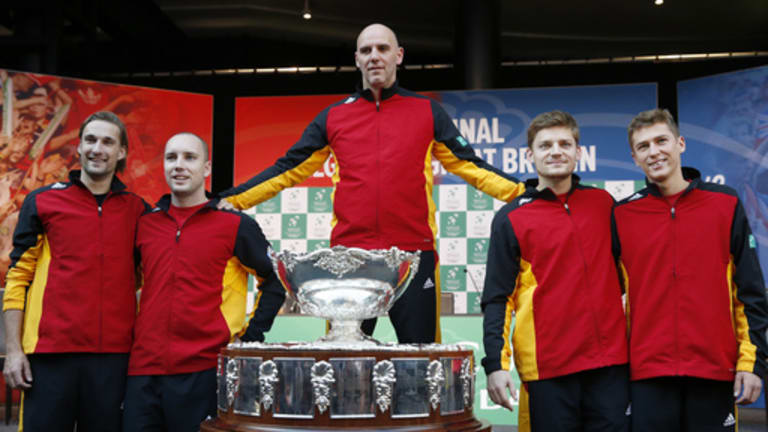What had once been a refreshing Davis Cup final has turned more than a little nerve-wracking. Great Britain and Belgium, two of the more unlikely finalists in recent years, last played in the championship round 111 years ago. But after waiting so long for a rematch, the two teams and countries must do it in Ghent, Belgium, while the country is in the midst of a security lockdown. As they say: These are the times we live in. And as they also say: The show must go on.
As far as the tennis itself goes, this will be a weekend of what, on paper, look like wildly one-sided match-ups. Great Britain and Belgium each have one highly ranked player—No. 2 Andy Murray for the Brits, No. 16 David Goffin—followed by a cast of journeyman teammates. Can one of those journeymen pull off a massive upset? Or will it be decided by the doubles tie on Saturday? Great Britain, who has the best singles player in Murray, and the best doubles player in his brother Jamie, is the favorite. But the fact that these two teams are in the final in the first place should tell us that nothing is certain in Davis Cup this season.
One thing we can be pretty sure of is that the crowd, whatever security gauntlet they have to run to get there, will make itself felt and heard—it will be a sea of Belgian red vs. a smaller sea of British blue. The scene in the Belgian arena when the team clinched its semifinal two months ago was one of this season’s most deliriously joyous. We’ll see if they get a chance to repeat it, and forget their worries for a few minutes, on Sunday. Here's a look at the weekend's lineup of matches.
